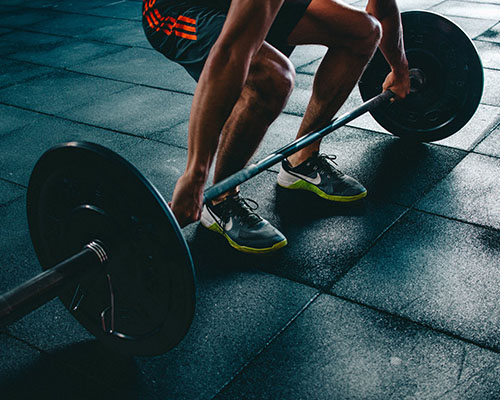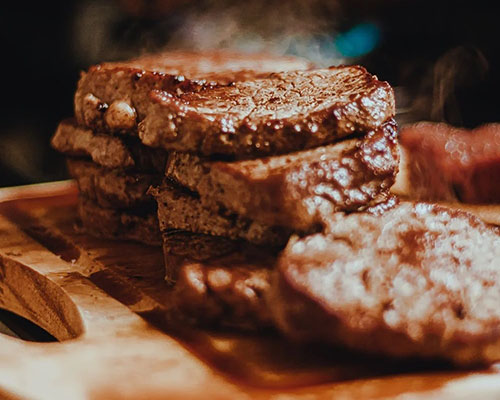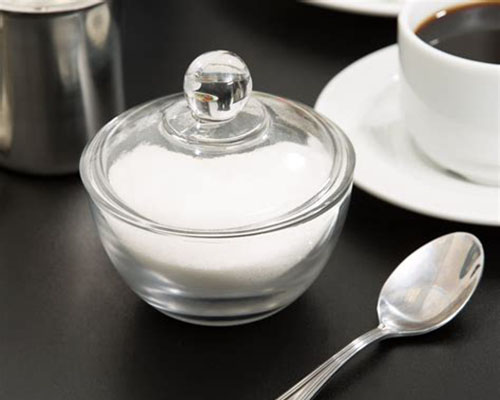Most guys are aware that testosterone plays a central role in male sexual function and athletic performance, but they are not aware of its other benefits. Those secondary benefits include better cardiovascular health, stronger bones, enhanced memory, better sleep, and increased alertness, just to name a few.
Boosting testosterone levels, then, can be a smart course of action if you want to enjoy more robust all-around health. But how do you do that without subjecting yourself to testosterone shots at your doctor’s office? Fortunately, if you have an aversion to needles, there are many ways to increase testosterone naturally, and we’ve brought together 36 of them right here.
Related: best testosterone boosters
1. Start Resistance Training

If your goal is to boost your testosterone levels, the best way to do that is by way of resistance training. While you won’t have to become a full-fledged bodybuilder, you will need to engage in regular workouts with free weights (1), and they will need to be pretty strenuous workouts to trigger a hormonal response. By pushing your muscles, you create tiny tears in the muscle tissue. When this happens, your body responds with, among other things, testosterone to affect repairs and provide the impetus for growth.
The great thing about weight lifting is that it provides a wealth of benefits (2)(3) besides just increasing testosterone levels. Those benefits include – but are not limited to – improved cardiovascular health, lower risk of injury (especially if you are over 50), better sex, clearer thinking, greater control over blood sugars, enhanced self-image, and lower body fat.
2. Perform Compound Lifts
Yes, weightlifting (resistance training) is the best, most effective natural way to increase your testosterone levels. But not just any old weight training will do. To really enjoy the testosterone boosting benefits of weight training, you need to do what are called “compound lifts”. This type of lift is also called a “multi-joint lift” because it engages muscles on both sides of multiple joints, rather than something like a bicep curl which only fully engages the elbow joint.
Examples of compound lifts include the squat, the deadlift, the clean and jerk, the bent-over row, the inclined bench press, and the barbell shrug. If you want to enjoy optimal benefits from your compound lifts, use free weights rather than weight machines. Weight machines take some of the pressure off of your muscles because those muscles don’t have to work as hard to control the weight. As such, you don’t get as much out of the lift.
3. Lose Weight
Despite media campaigns to the contrary, being overweight is not healthy, nor is this dangerously unhealthy state something to be celebrated. Obesity increases one’s chances of developing diabetes, increases the risk of heart disease, is a primary risk factor for dying of covid19, increases your chances of developing high blood pressure, and shortens life (4). For the purposes of this article, however, we’re concerned with the fact that obesity suppresses testosterone production (5).
If you are an overweight guy who wants to increase his testosterone levels, the best way to do so is to lose weight. If you’re overweight and thinking you will lose weight through resistance training, that might not be such a great idea. Research indicates that aerobic exercise will be your best choice and that adding resistance training to aerobic exercise does not speed up weight loss (6).
4. Eat More Protein

There is little evidence that consuming protein will, by itself, elevate levels of testosterone in the blood. But there is no doubt that if you want to enjoy an optimal testosterone boost from your resistance training, you have to give your muscles the protein they need to repair and rebuild bigger and stronger.
So the effect here is indirect: eat more protein to build bigger muscles, to power your workouts to release more testosterone. Just to be clear: there are a lot of websites out there telling people that if they just eat more protein, they’ll produce more testosterone. There is no credible evidence this is actually true (7). What is true is that if you engage in strength training and up your protein consumption accordingly, you will help produce more powerful muscles that release more testosterone when they’re activated.
5. Try Intermittent Fasting
Intermittent fasting is all the rage these days, often for reasons that are clear only to the one fasting. However, if you are looking for new and interesting ways to increase your overall testosterone levels, intermittent fasting may be one. Typically, intermittent fasting involves eating normally for five days per week and then drastically reducing food intake for the other two days.
The popular claim is that this type of fasting boosts testosterone by forcing your body to consume fat for energy, a process known as ketosis (8). The thing is, there’s plenty of evidence that the low carb keto diet boosts testosterone (9), but if you’re seesawing in and out of ketosis, any testosterone boost is going to be sporadic. A better strategy might be to embrace the keto diet full-on, but that brings its own set of issues.
6. Increase HDL Cholesterol Levels
The two most abundant types of cholesterol are LDL and HDL. HDL is considered “good” cholesterol while LDL is considered “bad”. There is scientific evidence that strongly suggests a positive link between elevated levels of HDL cholesterol and serum (blood) testosterone levels (10). As a result, you will read lots of blog posts and articles espousing the virtues of packing in the HDL cholesterol.
While the evidence leaves little doubt that more HDL cholesterol equates to more serum testosterone, a word of caution is nonetheless warranted here. That’s because a recent study involving more than 6,000 people concluded that getting too much HDL cholesterol in your diet can dramatically increase a person’s risk of heart disease (11). Therefore, if you’re determined to raise your HDL intake to boost testosterone, talk to your doctor first.
7. Get Plenty of Sleep

There are plenty of reasons why you should be getting enough sleep (12), particularly if you are engaged in vigorous weight training. After all, it’s while you’re sleeping that most muscle repair and rebuilding occurs, and bigger muscles will have a positive effect on the amount of testosterone released while you lift. However, there’s a more direct correlation between sleep and testosterone levels.
Researchers have discovered that when men don’t get enough sleep, their testosterone levels drop pretty dramatically during the day (13). This is true whether you lift weights or not. Exactly why this happens is not fully understood, but the evidence is clear: if you want to prevent your testosterone levels from dropping, get the recommended 7-9 hours of sleep per night. Adequate sleep will also make for more effective workouts and help prevent injury.
8. Stop Hating on the Fats
Sifting through all the data can be a chore, but if you’re up to it, you’ll discover that scientists generally agree that there is a positive relationship between the amount of monounsaturated fat a man ingests and his serum testosterone levels. That might seem counterintuitive since we’ve been told for decades that fat is bad. But it seems to be true (14).
That then begs the question: What type of food contains those beneficial monounsaturated fats? The answer is nuts like almonds and peanuts, peanut butter, olive oil, and avocados. For the record, there is also evidence that saturated fats have a role to play in boosting testosterone levels (15). You’ll find healthy saturated fat in foods such as dark chocolate, hard cheeses, eggs yolks, red meat, and coconut oil.
9. Drink Milk Before Bed
We have alluded to the fact that a lot of testosterone production goes on during the night while you’re sleeping. If you are inclined to help that process along, you might want to try drinking some full-fat milk shortly before going to bed. “Full-fat” is just another way of saying “whole milk”, so don’t worry, you shouldn’t have trouble finding it.
Whole milk right before bed provides the added benefit of increasing melatonin production, which should help you get to sleep faster. One way to tell if your nocturnal whole milk testosterone experiment is bearing fruit is if you wake up with a serious case of morning wood, as morning stiffies are a sure sign of robust testosterone levels.
10. Increase Your Exposure to Sunlight

There is a well-known correlation between elevated levels of vitamin D achieved through supplements and elevated testosterone levels (16). But we’re looking for natural ways to boost testosterone, so we’re trying to steer clear of direct use of supplements. Fortunately, in this case, there is a simple and convenient way to increase your vitamin D production: go out and play in the sun for a while.
Exposure to sunlight is actually the primary way most people get their vitamin D (17). No, sunlight does not include tiny vitamin D molecules. What happens is that ultraviolet B light from the sun is absorbed by the skin and reacts with a compound called 7-dehydrocholesterol. 7D, as we’ll call it, then transforms into previtamin D3 and then actual vitamin D3. So if you want to boost your testosterone levels using Vitamin D, go outside and get some sun.
11. Eat Your Broccoli
Turns out your mom was right when she told you to eat your broccoli. For those interested in boosting their testosterone levels, broccoli should be on your plate whenever possible. When you digest broccoli (or cauliflower or brussel sprouts, for that matter), your body creates a little something called diindolylmethane, or DIM, that plays an important role in regulating testosterone production.
There is also some evidence that suggests DIM may act as an estrogen blocker too, which would, of course, be beneficial to maintaining serum testosterone levels. In addition, there is evidence that DIM may help prevent the onset of prostate cancer or slow its progression by interfering with cancer cell proliferation (18), which is just icing on the broccoli cake.
12. Find Natural Sources of Zinc and Magnesium
Zinc and magnesium are minerals that are necessary for the production of testosterone. Deficiencies of either one can disrupt testosterone production. People who drink too much, who suffer from diarrhea, or who don’t don’t drink enough water can suffer shortages of these minerals, which, in turn, can cause testosterone levels to drop.
Fortunately, there are many foods rich in both zinc and magnesium, so getting enough shouldn’t be a problem. Oysters, crabs, and scallops are all good choices, as are bran cereals, yogurt, and legumes. Pumpkin seeds, sesame seeds, and Brazil nuts are also high in zinc and magnesium, as are cashews, and to a lesser extent, soybeans.
13. Get, It, On

You might have read that thinking about sex can cause a rise in testosterone levels. Unfortunately, that’s more urban legend than scientific fact. However, there is little doubt that getting it on regularly can indeed help boost testosterone levels, but not because of the sex act itself. Instead, it seems men who have regular vigorous sex see an increase in testosterone because sex is a form of aerobic exercise, and exercise can boost testosterone (19).
While regular sex is good for your spirit and your testosterone levels, keep in mind that the testosterone boost is likely to be brief. Within an hour or so after sex, your testosterone levels will probably return to where they were. So it’s not a miracle cure for low testosterone, but it’s a potentially valuable weapon in your arsenal.
14. Reduce Stress Levels
Testosterone has two sworn enemies in your blood; estrogen and cortisol. While the estrogen/testosterone relationship is often exaggerated in the negative, there is no exaggerating the negative effect of cortisol on testosterone levels. More cortisol means less testosterone. That’s important to our point here because, as it turns out, stress raises cortisol levels in the blood (20).
If you want to provide yourself the best chance of being able to take advantage of the testosterone boost provided by your exercise and dietary discipline, do your best to alleviate stress in your life. If you don’t, any testosterone gains may be offset by stress-related increases in cortisol.
15. Carbohydrates Are Your Friend (Within Reason)
”Testosterone concentrations in seven normal men were consistently higher after ten days on a high carbohydrate diet”. That sentence is lifted verbatim from a scientific study looking at the relationship between carbs and testosterone levels (21). It’s the kind of clear-cut statement that’s hard to ignore and, if you’re interested in raising your testosterone levels, that you shouldn’t ignore. Remember, too, that if you are weight training, the carbs will be necessary to power your workouts.
We can’t mention carb-loading without mentioning the potential dangers, however. If you are not physically active and elevate your carb intake, any testosterone boost will be temporary. Eventually, you will put on so much excess weight that your testosterone levels will drop, and you’ll open yourself up to heart disease, diabetes, and other conditions.
16. Know the Medications You’re Taking

This is something that’s often overlooked when guys are trying to figure out why they don’t seem to be able to boost their testosterone levels. There are actually a number of prescription medications that are known to interfere to some degree with testosterone production. If you are taking one of these medications and not enjoying the kind of testosterone boost you’ve been hoping for, your meds might be the reason.
Medications known to interfere with testosterone production include Cimetidine (often prescribed for GERD or ulcers), Spironolactone (used to treat high blood pressure), Ketoconazole (used to treat fungal infections such as athlete’s foot), and some antidepressants. Opioids and certain chemotherapy drugs can also interfere with testosterone production. If you are taking any of these meds, discuss the situation with your doctor. Don’t just stop taking them on your own.
17. Get to Know Fenugreek
Unless you are a fan of herbs, it is likely you’ve never heard of fenugreek, or if you have, it was simply mentioned in passing in a conversation with someone at the gym. Turns out this little known herb is actually quite the testosterone booster, a fact that has been confirmed clinically on numerous occasions.
Despite the fact that studies have shown that fenugreek can increase serum testosterone (22), most people still don’t know how to use it. In most cases, the long, brownish seeds of the fenugreek plant are dried and then ground up and used in a variety of dishes. If you’ve ever had Indian food, there is a decent chance you’ve had fenugreek. You can also use it in wraps and stews, or you can eat the seeds raw in their whole state.
18. Eat Avocado
Avocados are the kind of food many people are reluctant to try, but once they do, they can’t get enough. If you are trying to raise your testosterone levels and you also happen to have a taste for avocados, you’re in luck. That’s because avocados also happen to be high in zinc, which plays an important role in testosterone production.
So next time you’re at a Mexican restaurant, make sure you order plenty of guacamole. Or, if you’re food shopping at the supermarket, make sure to grab some avocados along with the rest of your salad fixins.
19. Cut Back on the Sugar

Eating lots of sugary foods raises a person’s blood glucose level. That, in turn, promotes insulin release to counteract the effect. Insulin interferes with testosterone production and testosterone levels in the blood, which typically means testosterone levels drop when insulin levels rise to meet elevated levels of blood sugar (23). The effect is even more pronounced for those who have developed type 2 diabetes.
If you want to ensure all that testosterone you’re producing through your weight lifting routine is not being devoured by insulin, you would be wise to cut back on sugary drinks and desserts. You would also be well-advised to watch for sugar that is often hidden in processed foods to make them taste better.
20. Eat Macadamia Nuts
As a general rule, you can’t go wrong eating nuts to increase testosterone levels. (They’re also full of omega-3 fatty acids that have a wealth of other benefits.) But some nuts are more effective than others. The macadamia nut, for instance, is one of the best when it comes to naturally increasing testosterone. That’s because it’s loaded with beneficial saturated fatty acids that aid in testosterone production.
Brazil nuts are also good for boosting testosterone levels for much the same reason. Although they do not contain the same levels of saturated fat as macadamia nuts, their levels are still above average. If Brazil nuts have a downside, it’s that most people find the taste – which can best be described as “moldy” – a bit challenging.
21. Add Ginger to Your Diet
This one is a little bit controversial only because there have not been any large-scale human studies looking into the connection between ginger and testosterone production. There have, however, been animal tests that have concluded that ginger can indeed boost testosterone levels (24). Ginger seems to increase HDL cholesterol levels, enhance antioxidant activity, stabilize blood sugars, and recycle testosterone receptors, among other things.
One of the other many great things about ginger is its versatility. You can use it to enhance any number of dishes from cashew chicken and pork tenderloins to salads, spaghetti, and soups, as well as seafood dishes, pie, chili, and numerous stir-fry dishes. Or you can man up and eat it raw.
22. Build Bigger Muscles

The goal of resistance training in this case is to boost testosterone levels. Still, many guys want to know if bigger muscles by themselves will generate higher serum testosterone levels. The answer is no. Muscles don’t produce testosterone; your testicles do (25). However, as you increase the volume and intensity of your weight training, you will generate more testosterone to help repair and rebuild muscles.
The more muscle you build, the more weight you can lift and the more testosterone your testicles will produce during your workouts. If, on the other hand, you do maintenance lifting and your muscle mass stays essentially the same, the law of diminishing returns will set in, and any testosterone boost going forward will be minimal.
23. Clean Up Your Gut
To this point, many of our suggestions for boosting testosterone have involved dietary adjustments. However, the quality of the benefit you receive from incorporating those suggestions will depend in large part on the state of your gut. If your stomach and intestines are an inefficient mess, your body will not effectively process the new minerals or other compounds you are introducing, and any testosterone boosting benefits will be limited.
Probiotics (26) are a simple and very effective way to improve the efficiency of your digestive tract. Probiotics are beneficial bacteria that thrive in the gut and help your body metabolize food. Without these microscopic freeloaders, you would starve to death because your body could not harvest nutrients from the food you eat. Yogurt, sauerkraut, kimchi, and pickles are excellent sources of probiotics.
24. Try Some HIIT Training
If you’ve never heard of HIIT training, we can assure you it has nothing to do with hitting anyone. HIIT, if you don’t know, stands for High-Intensity Interval Training. It involves alternating periods of very high intensity followed by low-intensity exercise. For example, one type of HIIT workout may involve sprinting all out for a minute, then transitioning directly to a minute of jogging, followed by a return (without stopping) to all-out sprinting, and so on.
The effect of subjecting your body to this kind of alternating intensity workout is that it tends to burn through the sugar in your blood, putting you into an anaerobic (27) state. HIIT training is very popular these days in health clubs and gyms nationwide. So if you are someone who likes to work out in a group, you should have no problem finding HIIT classes in your area.
25. Learn Martial Arts or Boxing

So far, we have looked at two dozen ways that you can naturally increase testosterone levels in your body. Most have involved some form of strength training or dietary adjustments. This one, however, involves neither of those. In this case, the recommendation is to get involved with some form of aggressive sport such as martial arts or boxing. Why? Because studies have shown that when you cultivate an aggressive mindset (like you need in martial arts or boxing), you actually increase your testosterone production (28).
Granted, not everyone is up for trading punches to the face as a way to stimulate testosterone production. But the option is there if you want it. And it works. Don’t worry, you don’t have to turn into prime Mike Tyson to enjoy this benefit. You just need to engage in some type of sport that requires genuine physical aggression.
26. Stop Hiding Behind Your Age
If you have a chance to engage in candid discussions with aging men (typically 40+), you will often hear them dismiss the idea that they could naturally increase their testosterone levels and enjoy the benefits thereof. One of their most common excuses for dismissing such talk is that they’re “too old” to work out, or save their sex life, or build a manlier physique. All we can say to that is hogwash!
Scientists and researchers are adamant in expressing their belief that older people will reap numerous important benefits from weight training (29), which, as we’ve seen, is the best natural way to increase serum testosterone levels. In fact, doctors recommend that older people partake of resistance training three or four times a week (30) with the stated goal of gaining muscle, which will, of course, increase testosterone levels. So, stop hiding behind your age.
27. Say No To Soy
We’ve already mentioned that increased protein intake is a good way to boost testosterone levels. However, not just any protein will do. This may be hard for vegans to hear, but it really needs to be animal protein. If you thought you would boost your testosterone production by scarfing soy protein shakes, it’s not going to happen. Soy protein does nothing to elevate testosterone production (31). Not only that, soy products may reduce your sperm count (32).
As if that is not enough bad news, there is also evidence that soy increases estrogen levels in both men and women. And the last thing you want if you’re trying to raise the amount of testosterone in your system is estrogen interfering with testosterone production, which it will do. Finally, soy is just not absorbed as efficiently by our bodies, which means the amount of protein that enters your system is lower per volume than it is from other sources.
28. Stop Eating Junk Food

The best way to help your body produce the additional testosterone you’re after is to support it by way of a healthy diet. Slamming down burgers and fries won’t do anything except clog your arteries, starve you of essential nutrients, and weigh you down with more carbs than you could possibly use.
Instead of stopping off at the burger joint on the way home from the gym, stop somewhere that has a good salad bar or where you can get a nice lean steak. Stock your refrigerator with fresh fruit and veggies and more lean meat like boneless chicken breast. Replace your sugary drinks with spring water, and if you’re drinking that premixed (all sugar) 3-1 instant coffee, ditch it and get a coffee maker, a grinder, some whole milk, and cut back on the sugar you use to sweeten it.
29. Eat Strawberries
Besides being extremely tasty, strawberries contain quite a bit of zinc. Zinc consumption, as we discussed earlier, is an important factor in determining testosterone levels in normal men (33). That increased zinc consumption equals increased testosterone is one of the clearest A=B equations in nutrition. So if you’re looking for a natural source of zinc that tastes great, start eating strawberries.
Strawberries will also help you achieve a higher degree of overall health because they are loaded with vitamin C, antioxidants, and important minerals like potassium. In addition, they are a good source of fiber, free of fat, low in sodium, and low in calories. So, if you’re truly interested in better health and raising your testosterone levels, reach for the strawberries next time you’re at the market.
30. Drink Coffee
For years, lifters have made sure to have a cup of strong coffee before hitting the weight room to provide them the energy boost they need to power through their workouts. But having a cup of coffee may do more than raise the octane level in your tank. It may also help raise your testosterone level both during and after exercise (34).
It was long thought that caffeine, being an artificial stimulant, was inherently bad for people. We now know that the opposite is, in fact, true. Coffee provides a wealth of benefits, including reduced risk of stroke and heart failure, reduced risk of Alzheimer’s, and the potential to extend your life (35). Now there is also evidence that it may raise testosterone levels when drunk prior to weight lifting. It’s just the gift that keeps on giving.
31. Don’t Forget the Oysters

For thousands of years, men have sung the praises of the oyster as an enhancer of sexual performance. Now there seems to be at least some scientific evidence to back up that claim (36). A study published in the International Journal of Peptide Research and Therapeutics concluded that male rats fed oysters experienced a significant boost in testosterone levels.
The precise mechanism is complex and seems related to luteinizing hormones and an increase in serum nitrous oxide content. But whether or not you understand the physiology in the results, those results seem to confirm the long-held belief surrounding oysters. Elevated testosterone is not the only reason to eat this particular seafood, however. Oysters are also high in vitamins, minerals and protein, and loaded with heart-healthy antioxidants.
32. Get to Know Ashwagandha
Ashwagandha has been a part of Ayurvedic medicine for thousands of years, mostly as a treatment for infertility. Until recently, Western medicine tended to scoff at the idea that this small evergreen shrub produced anything more than a captivating myth. However, once Western researchers finally got around to taking a look at Ashwagandha, they were impressed.
It turns out “Indian ginseng,” as it’s also called, does pretty much what traditional healers have been saying for centuries that it does: boost testosterone (37) and increase sperm counts. Ashwagandha is most often taken as a supplement in capsule form, but ashwagandha powder can also be sprinkled into your latte or used in baking.
33. Eat Coconuts
Bodybuilders have believed for decades that saturated fat has the effect of raising serum testosterone levels. For some time, studies have indicated that when men reduce the amount of saturated fat in their diet, their hormone levels decrease (38). But that by itself wasn’t conclusive proof that increasing dietary saturated fat would increase testosterone levels. Now there is scientific support for that proposition (39).
But what does that have to do with coconuts? Coconuts, it turns out, are quite high in saturated fat. In fact, more than 90 percent of the fat in coconuts is saturated fat. Therefore, if you want a safe, tasty way to help give your testosterone levels a boost, research suggests you’d be wise to develop a taste for coconuts. That’s real coconut. Not highly processed coconut that’s covered with cheap, sugar-heavy milk chocolate.
34. Try Dark Chocolate

Stay with us while we take a bit of a round-trip to our point. Dark chocolate is known to be high in flavanols (40). That’s one of the reasons researchers suggest you might want to eat dark chocolate on occasion. Those flavanols are, in turn, good for your heart (41) and can reduce a person’s risk of developing cardiovascular disease.
One other benefit of maintaining a healthy heart is that you will be able to get more out of your weight lifting routines, which will, in turn, increase the overall health of your heart muscle even further. Finally, those vigorous workouts will produce more testosterone than if you were limited to more modest lifting routines. So, eat dark chocolate to increase flavanol levels, to increase heart health, to power more effective workouts that release more testosterone.
35. Use Olive Oil
Doctors, researchers, and dieticians have been singing the praises of olive oil for a couple of decades now. This is not idle chatter on their part and has a direct bearing on the topic at hand. You see, not only will high-quality olive oil make your food taste better, but it will also help you raise your testosterone levels. How? We’ll tell you.
You see, you don’t have to look very far to find a scientific link between the consumption of olive oil and elevated levels of HDL, or good, cholesterol (42). That’s important because there is also plenty of evidence linking elevated HDL cholesterol levels with elevated levels of testosterone (43). The take away seems pretty straightforward: use olive oil in and on your food to increase HDL cholesterol levels and, by extension, raise testosterone levels.
36. Make Sure You’re Training the Right Way
Before we close, we want to revisit weight training and make one more important point. At the outset, we discussed how weight training can boost testosterone levels and how compound lifts were the most effective type of lifts to do. While both of those things are true, there is one other factor that weighs on the size of the testosterone boost you receive: the volume of lifting you do.
Volume refers to the total number of reps and the total amount of weight you lift. Studies show that if you concentrate on higher volume rather than maximum weight, your body will release more testosterone (and growth hormone) in response (44). So, instead of seeing how much weight you can bench press, focus instead on putting anywhere from 75 – 90 percent of your maximum weight on the bar and doing as many reps as possible.

